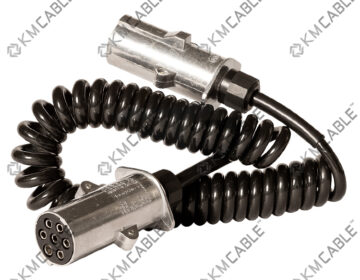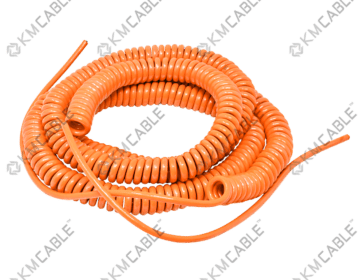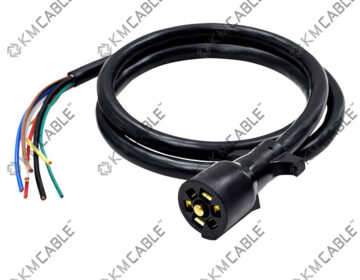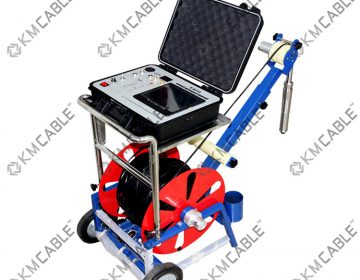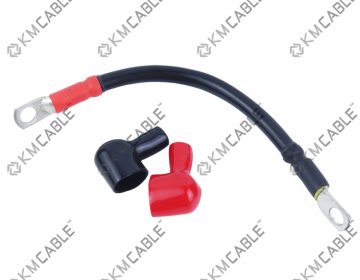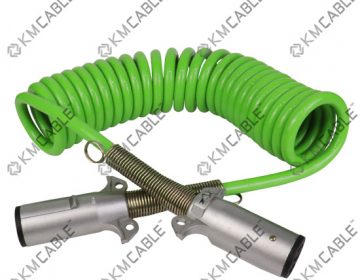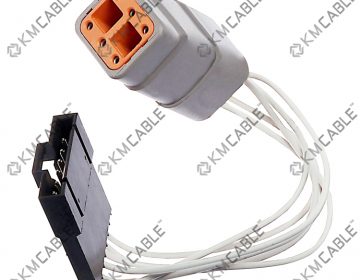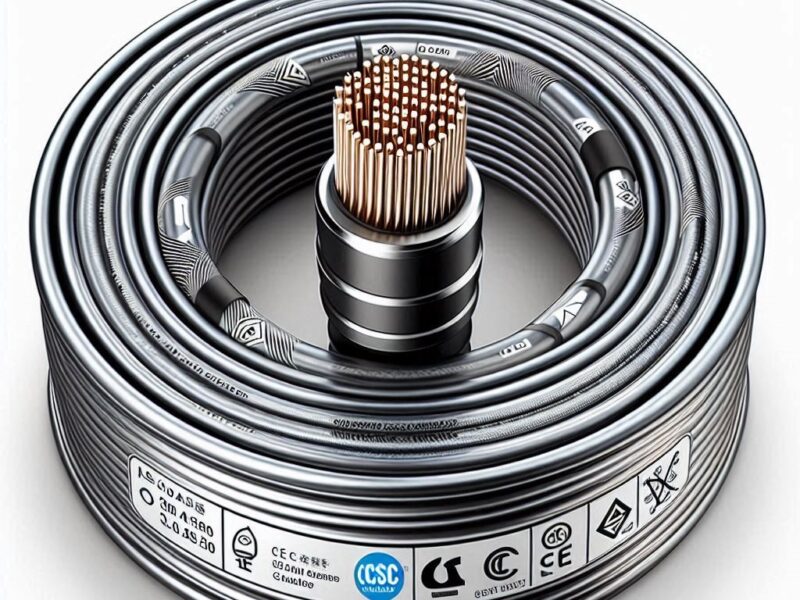
Industrial Wire Cables
Industrial wire cables are critical components in modern industry, acting as the backbone of electrical and electronic systems in sectors ranging from manufacturing to transportation. Their primary function is to transmit power and signals, ensuring that machines, devices, and infrastructure operate reliably and efficiently. Given the crucial role these cables play, their safety, performance, and compliance with industry standards cannot be overstated.
In the industrial sector, where the stakes are high and the margins for error are thin, choosing the right wire cables is more than just a matter of technical specifications. It’s about ensuring that these cables meet stringent safety and performance standards. This is where certifications like CCC and CE come into play. These certifications are not just bureaucratic requirements; they are vital for guaranteeing that the cables used in industrial applications are safe, reliable, and up to the task.
Understanding Cable Certifications
Cable certifications are formal attestations that a product meets specific standards of quality, safety, and performance. In the context of industrial wire cables, these certifications ensure that the cables can withstand the harsh conditions and rigorous demands of industrial environments. They are often mandated by regulatory bodies and are essential for legal compliance, market acceptance, and user safety.
Standards play a critical role in the industrial sector by establishing a common language and set of expectations. For industrial wire cables, certifications are particularly important because they verify that the cables meet certain electrical, mechanical, and environmental criteria. Without these certifications, the risk of failure—whether due to electrical malfunctions, mechanical stress, or environmental factors—rises significantly.
What is CCC Certification?
The China Compulsory Certification (CCC) is a mandatory certification system implemented by the Chinese government. It applies to a wide range of products, including industrial wire cables, that are either manufactured in or imported into China. The CCC mark indicates that a product has been tested and found to meet China’s stringent safety and quality standards.
China’s regulatory landscape is known for its complexity and rigor, particularly in the area of industrial equipment and materials. CCC certification is part of this regulatory framework, ensuring that only products that meet China’s safety, environmental, and performance standards can enter the market. For industrial wire cables, CCC certification is crucial because it provides assurance that the cables will perform reliably under the demanding conditions found in Chinese industrial settings.
What is CE Certification?
The CE marking, short for “Conformité Européenne,” is a certification mark that indicates conformity with health, safety, and environmental protection standards for products sold within the European Economic Area (EEA). For industrial wire cables, CE certification is a declaration by the manufacturer that their products meet the essential requirements of relevant European Directives.
Regulatory compliance in Europe is enforced through the CE certification process, which covers a broad spectrum of products, including industrial wire cables. The CE mark is recognized globally and is often a prerequisite for exporting products to the European Union. In addition to meeting safety and performance standards, CE certification also ensures that industrial wire cables are compatible with other equipment and systems, facilitating seamless integration and operation in European markets.
Differences Between CCC and CE Certification
While both CCC and CE certifications serve the purpose of ensuring product safety and compliance, they differ significantly in their scope, regulatory bodies, and specific requirements.
Geographically, CCC certification is required for products in China, while CE certification is mandatory for products in the European Union. The regulatory bodies responsible for these certifications also differ, with CCC certification being managed by Chinese authorities and CE certification overseen by European agencies.
The processes for obtaining these certifications also vary. CCC certification involves a more centralized and government-controlled process, while CE certification relies more on self-declaration by manufacturers, backed by third-party testing and verification in certain cases. Understanding these differences is crucial for manufacturers and suppliers who wish to operate in both markets, as non-compliance can lead to severe penalties, including product recalls and bans.
Importance of Certified Cables in Safety
Certification plays a critical role in ensuring the safety of industrial wire cables. Electrical systems are inherently risky, with potential hazards ranging from short circuits and electrical fires to mechanical failures that could result in serious injury or loss of life. Certified cables are tested to withstand these risks, ensuring that they can operate safely even under extreme conditions.
Ensuring compliance with safety standards is not just about meeting regulatory requirements; it’s about protecting lives and property. Certified cables are designed and tested to prevent common electrical hazards, such as overheating, insulation breakdown, and fire propagation. This is particularly important in industrial settings, where the consequences of a cable failure can be catastrophic.
There have been numerous cases where the use of non-certified cables has led to serious accidents. In many of these cases, the root cause was traced back to substandard materials or manufacturing processes that failed to meet safety standards. By using certified cables, companies can significantly reduce the risk of such incidents, ensuring the safety of their employees, equipment, and facilities.
Impact on Performance and Reliability
In addition to safety, certifications like CCC and CE also have a significant impact on the performance and reliability of industrial wire cables. Certified cables are subjected to rigorous testing to ensure they can perform as expected in demanding environments. This includes tests for electrical conductivity, insulation integrity, resistance to mechanical stress, and durability under various environmental conditions.
The performance of industrial wire cables is critical to the overall efficiency and productivity of industrial operations. A cable that fails prematurely can lead to costly downtime, repairs, and even damage to other equipment. Certified cables are designed to minimize these risks by providing consistent and reliable performance over their expected lifespan.
Comparative studies have shown that certified cables tend to outlast non-certified ones, particularly in harsh industrial environments. This is because certified cables are made from higher quality materials and are subjected to more stringent quality control processes. By choosing certified cables, companies can improve the reliability and longevity of their electrical systems, leading to lower maintenance costs and fewer interruptions to their operations.
Global Standards and Harmonization
The globalization of markets and supply chains has increased the need for harmonized standards and certifications. This is particularly true for industrial wire cables, which are often used in multinational projects that span several countries and continents.
Global harmonization of cable standards aims to create a unified set of criteria that can be recognized and accepted across different regions. This not only facilitates international trade but also ensures that products meet a consistent level of safety and performance, regardless of where they are manufactured or used.
The push towards global standards is driven by both regulatory bodies and industry groups, who recognize the benefits of having a common framework for
cable certification. For manufacturers, this means that achieving compliance with one standard can often simplify the process of gaining certification in other regions, reducing costs and time to market.
How to Identify Certified Cables
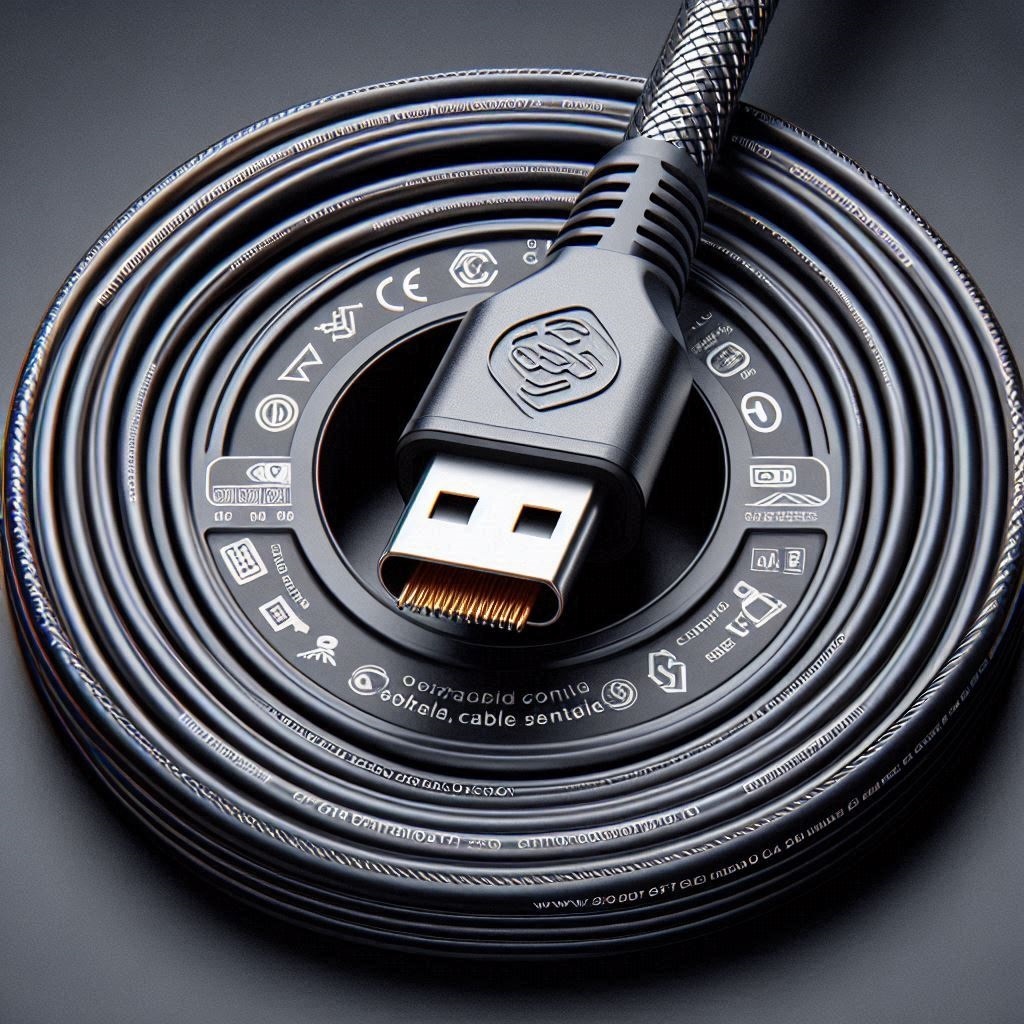
Identifying whether an industrial wire cable is certified can sometimes be challenging, particularly given the prevalence of counterfeit products in the market. However, there are several key indicators that can help.
For CCC certified cables, look for the CCC mark on the product itself or its packaging. This mark is usually accompanied by a certification number that can be verified through the official CCC database. Similarly, CE certified cables should bear the CE mark, which can also be cross-referenced with certification records.
It’s important to be aware of common misconceptions about cable certification. For example, some products may display marks that resemble official certification logos but are not recognized by any regulatory body. Always verify the authenticity of the certification with the relevant authorities to ensure you are getting a genuine product.
Regulatory Compliance and Industrial Applications
Different industries have specific regulatory requirements for the use of certified cables. For example, in the oil and gas industry, cables must be able to withstand extreme temperatures and corrosive environments, while in the automotive industry, they must meet strict standards for durability and electrical performance.
Compliance with these regulations is crucial for ensuring that industrial operations run smoothly and safely. Non-compliance can result in significant legal and financial consequences, including fines, shutdowns, and liability for accidents. In critical infrastructure, such as power plants and transportation systems, the stakes are even higher, making certification an essential part of the procurement process.
Certified cables are not just a regulatory requirement; they are a key component in maintaining the safety, reliability, and efficiency of industrial operations. By investing in certified cables, companies can ensure that they meet all regulatory requirements while also benefiting from the enhanced performance and longevity that certified products provide.
Choosing the Right Certified Cable for Your Needs
When selecting certified industrial wire cables, several factors need to be considered. First and foremost is the specific application and the environmental conditions the cable will be exposed to. Different certifications may be required depending on whether the cable will be used in a hazardous environment, subjected to mechanical stress, or required to transmit high levels of power.
The reputation of the manufacturer is also important. Reputable manufacturers are more likely to produce high-quality cables that not only meet certification requirements but also perform well in real-world conditions. It’s also essential to consider the trade-offs between cost and safety. While certified cables may be more expensive upfront, they offer better long-term value by reducing the risks associated with cable failure.
In the end, the choice of certified cable should be guided by a careful evaluation of the specific needs of your industrial application, as well as the potential risks and benefits of different options. By making an informed decision, you can ensure that your industrial systems are safe, reliable, and compliant with all relevant standards.
FAQs
Why are certifications like CCC and CE important for industrial cables?
Certifications like CCC and CE are crucial because they ensure that industrial cables meet stringent safety and performance standards, reducing the risk of electrical failures, accidents, and downtime.
How does CCC certification differ from CE certification?
CCC certification is mandatory for products in China and is governed by Chinese regulatory bodies, while CE certification is required in the European Union and is more focused on self-declaration by manufacturers with some third-party testing.
What happens if industrial cables do not have the necessary certifications?
Using non-certified cables can result in severe consequences, including legal penalties, increased risk of electrical hazards, and potential failures that could lead to costly downtime or damage to equipment.
Can I use CCC certified cables in Europe and vice versa?
While CCC certified cables may meet high safety standards, they do not automatically qualify for use in Europe. Similarly, CE certified cables may not meet all the requirements for use in China. Always verify compliance with local regulations before use.
How do I verify if a cable is truly certified?
You can verify certification by checking the certification mark (CCC or CE) on the cable or packaging and cross-referencing the certification number with official databases provided by the relevant authorities.
What are the risks of using non-certified cables in industrial settings?
Non-certified cables pose significant risks, including electrical malfunctions, fire hazards, mechanical failure, and legal liabilities. These risks can lead to serious safety incidents, costly repairs, and operational downtime.
CCC and CE certifications are essential for ensuring the safety, performance, and regulatory compliance of industrial wire cables. These certifications provide a level of assurance that the cables will perform reliably under demanding conditions, reducing the risk of accidents and failures. By understanding the differences between these certifications and how they apply to your specific needs, you can make informed decisions that protect your operations and ensure the longevity and reliability of your industrial systems.

